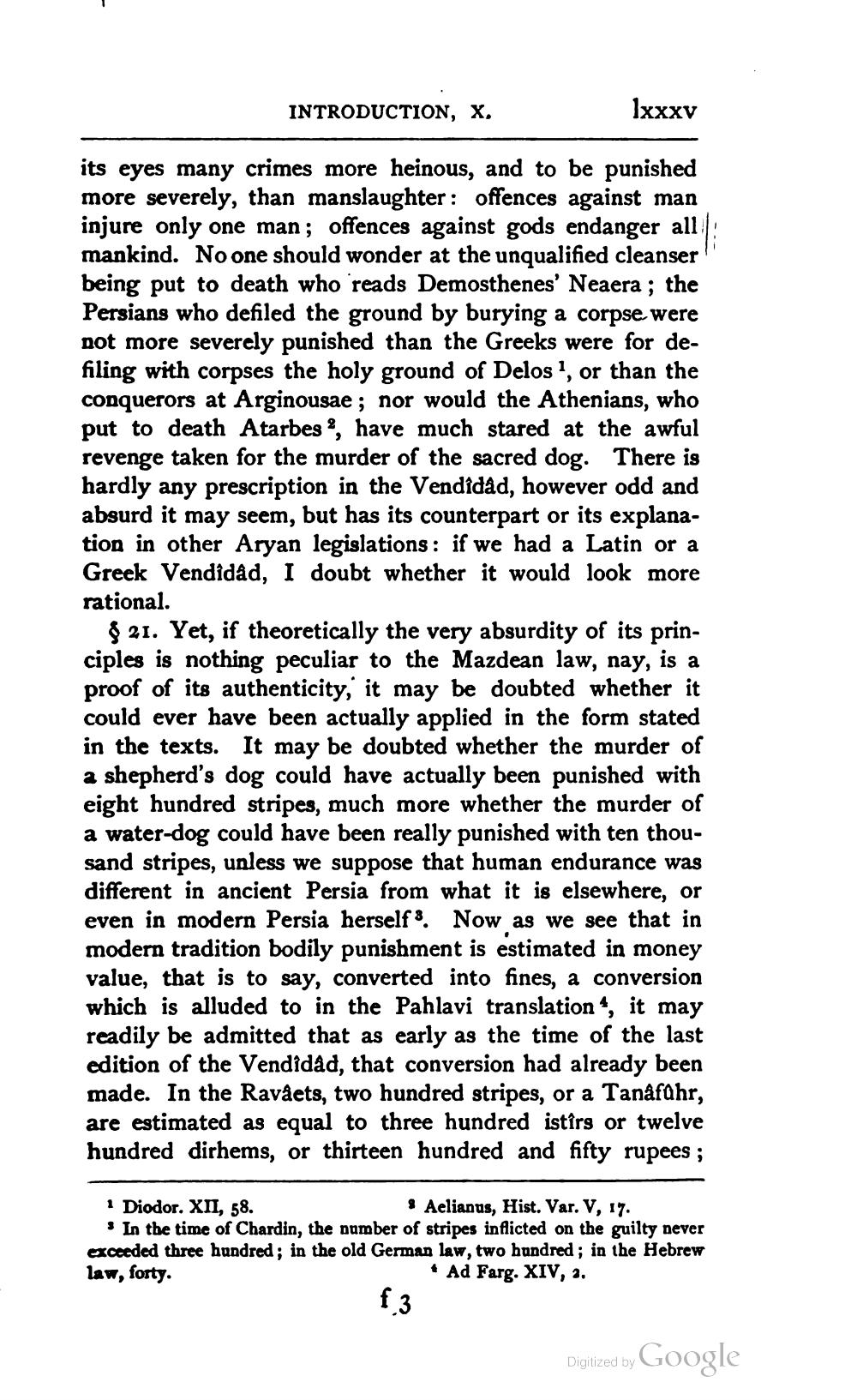________________
INTRODUCTION, X.
1xxxv
its eyes many crimes more heinous, and to be punished more severely, than manslaughter : offences against man injure only one man; offences against gods endanger all: mankind. No one should wonder at the unqualified cleanser being put to death who reads Demosthenes' Neaera ; the Persians who defiled the ground by burying a corpse were not more severely punished than the Greeks were for defiling with corpses the holy ground of Delos!, or than the conquerors at Arginousae ; nor would the Athenians, who put to death Atarbes, have much stared at the awful revenge taken for the murder of the sacred dog. There is hardly any prescription in the Vendidåd, however odd and absurd it may seem, but has its counterpart or its explanation in other Aryan legislations: if we had a Latin or a Greek Vendidåd, I doubt whether it would look more rational.
$21. Yet, if theoretically the very absurdity of its principles is nothing peculiar to the Mazdean law, nay, is a proof of its authenticity, it may be doubted whether it could ever have been actually applied in the form stated in the texts. It may be doubted whether the murder of a shepherd's dog could have actually been punished with eight hundred stripes, much more whether the murder of a water-dog could have been really punished with ten thousand stripes, unless we suppose that human endurance was different in ancient Persia from what it is elsewhere, or even in modern Persia herself 8. Now as we see that in modern tradition bodily punishment is estimated in money value, that is to say, converted into fines, a conversion which is alluded to in the Pahlavi translation, it may readily be admitted that as early as the time of the last edition of the Vendidåd, that conversion had already been made. In the Ravåets, two hundred stripes, or a Tanáfahr, are estimated as equal to three hundred istirs or twelve hundred dirhems, or thirteen hundred and fifty rupees ;
Diodor. XII, 58.
. Aelianus, Hist. Var. V, 17. In the time of Chardin, the number of stripes inflicted on the guilty never exceeded three hundred; in the old German law, two hundred; in the Hebrew law, forty.
* Ad Farg. XIV, 2. 13
Digitized by Google




